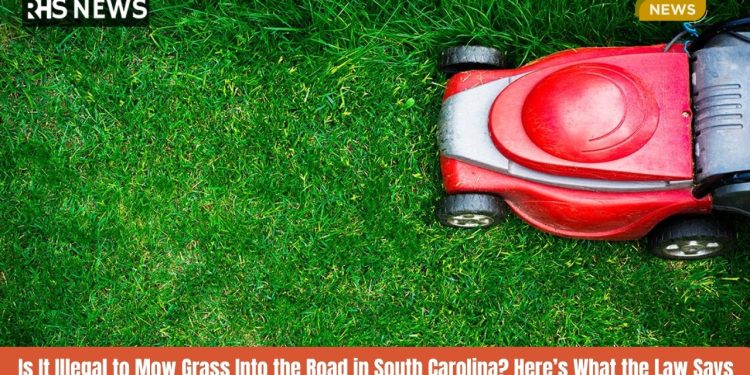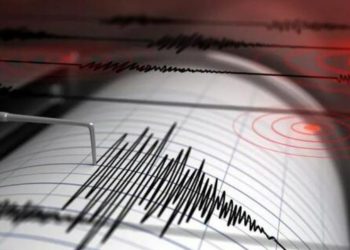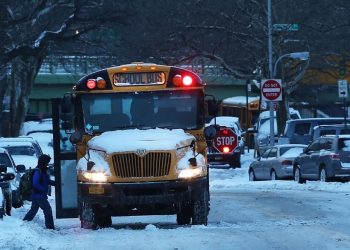Understanding lawn care and roadside regulations is important for homeowners and landscapers in South Carolina. One common question that arises is whether it is illegal to mow and blow grass clippings into the road. This article explores the legal framework around this practice in South Carolina, the potential risks involved, and guidelines to maintain safety and compliance.
Understanding the Law on Grass Clippings in South Carolina
This Article Includes
- 1 Understanding the Law on Grass Clippings in South Carolina
- 2 Local Ordinances and Municipal Rules
- 3 Safety Concerns Related to Grass Clippings in the Road
- 4 Legal Liability and Premises Responsibility
- 5 Best Practices for Homeowners and Landscapers
- 6 South Carolina Department of Transportation Roadside Vegetation Management
- 7 Environmental and Community Impact
- 8 Conclusion
At the state level, South Carolina does not have a specific criminal law that bans mowing grass clippings into the road or blowing yard waste onto public streets. Unlike some other states that clearly prohibit such acts as littering or illegal dumping, South Carolina’s state statutes do not explicitly outlaw leaving grass trimmings in the roadway. South Carolina law, under certain sections dealing with highways, forbids placing dangerous objects or substances on roadways that could cause harm or injury. This includes items such as glass, nails, wires, or objects likely to injure people, animals, or vehicles using the highway.
Grass clippings, mulch, and similar organic debris are not classified as “litter” under state law, so their presence on streets is not automatically considered illegal. However, while there is no statewide statute outright forbidding grass clippings in the roadway, the law emphasizes personal responsibility. Property owners, homeowners, and landscaping services are urged to avoid creating hazards by allowing grass debris to accumulate in street areas.
Local Ordinances and Municipal Rules
Though South Carolina lacks a statewide prohibition, some cities and towns may have local ordinances restricting or regulating the disposal of yard waste on public roads or rights-of-way. Local government rules sometimes prohibit placing or leaving any refuse—including grass clippings—on streets and rights-of-way in order to maintain cleanliness and safety.
For example, some municipalities require homeowners to place yard waste at curbside for scheduled collection or transport it properly to prevent cluttering or obstructing public roadways. Such local rules emphasize keeping public streets clear of debris to avoid nuisance and hazards. It is important for residents to check their respective city or county codes and guidelines to ensure compliance with local waste disposal and roadside maintenance regulations.
Safety Concerns Related to Grass Clippings in the Road
One of the major concerns related to mowing grass into the road involves safety hazards, particularly for motorcyclists and bicyclists. Grass clippings scattered on the pavement can reduce traction, making it easier for two-wheeled vehicles to slip or lose control. Unlike cars, motorcyclists and cyclists are much more vulnerable to accidents caused by slippery debris on road surfaces.
Leaving grass and other plant material in the roadway, even if it looks harmless or destined to wash away eventually, poses a tangible risk. Such debris can contribute to serious crashes with injury or even fatal outcomes on busy roads or highways. Therefore, while it may not be illegal under state law in South Carolina, leaving grass clippings on roads could result in liability if accidents occur because of negligence.
Legal Liability and Premises Responsibility
South Carolina premises liability laws hold property owners accountable for unsafe conditions they create or allow near public roadways. If grass clippings or yard waste left in the road contribute to an accident or injury, the responsible party could face civil liability for damages resulting from their negligence.
This means if a homeowner or landscaper allows grass clippings to accumulate in a way that causes a traffic incident, they might be sued for damages by injured parties. Liability can extend to covering medical costs, property damage, and other related expenses arising from accidents linked to unsafe debris on streets.
Best Practices for Homeowners and Landscapers
To avoid legal trouble and ensure public safety, homeowners and landscaping companies in South Carolina are encouraged to follow best practices regarding grass clippings and yard waste near roads:
-
Do not blow or mow grass clippings directly into streets, gutters, or roadways.
-
Collect and dispose of lawn clippings and plant debris properly by bagging them or placing them in designated yard waste containers.
-
Use appropriate mulching or composting techniques away from public roads to prevent clippings from becoming hazards.
-
Check for any local ordinances governing roadside yard waste disposal and adhere to them.
-
Maintain drainage ditches, culverts, and roadside areas free from clippings to avoid blocking water flow or causing erosion.
By taking these steps, property owners can contribute to safer road conditions, help preserve community cleanliness, and reduce their legal exposure.
South Carolina Department of Transportation Roadside Vegetation Management
The South Carolina Department of Transportation (SCDOT) actively manages roadside vegetation through a formal roadside vegetation program. This program integrates decisions about mowing, brush clearing, and plant debris management to ensure safety, environmental protection, and aesthetic considerations along public highways.
SCDOT guidelines require that woody debris generated from roadside maintenance be removed, chipped, or scattered properly within rights-of-way to minimize hazards and maintain road integrity. While homeowners have the responsibility for their private property waste, the department follows strict protocols for vegetation clearing on state-maintained roads.
Public roads undergo regular inspection to detect hazardous conditions related to vegetation and debris accumulation. These inspections are critical to prevent accidents and maintain safe visibility and drainage on highways.
Environmental and Community Impact
Leaving grass clippings in the road not only raises safety concerns but can also affect local environments and stormwater systems. Grass clippings can wash into storm drains, contributing to water pollution and nutrient overload in water bodies. This increases algae growth, harming aquatic life and water quality.
Moreover, clippings in public streets negatively impact community cleanliness and curb appeal. Proper lawn care disposal supports neighborhood pride and environmental stewardship.
Conclusion
In South Carolina, it is not explicitly illegal under state law to mow or blow grass clippings into the road; however, doing so is strongly discouraged due to safety risks and potential liability issues. Local municipal ordinances may impose specific restrictions, making it important to be aware of rules in one’s community.
The risks to motorcyclists and bicyclists, who can suffer serious injuries from slippery grass debris, highlight why homeowners and landscapers must act responsibly. Maintaining clear, debris-free roadsides is essential for the safety of all road users and the preservation of public infrastructure.
Following recommended practices such as collecting clippings properly, complying with local waste guidelines, and supporting roadside maintenance efforts will help citizens avoid legal trouble, protect the environment, and contribute to safer roadways throughout South Carolina.









